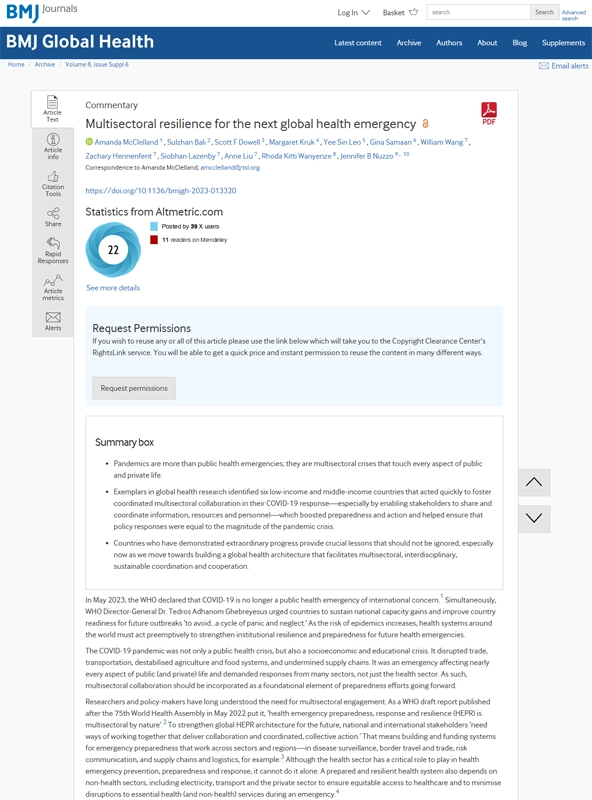Pandemics are more than public health emergencies; they are multisectoral crises that touch every aspect of public and private life. Therefore, multisectoral coordination—especially by enabling stakeholders to share and coordinate information, resources and personnel—enables appropriate policy responses during crises. Writing in BMJ Global Health, experts at Resolve to Save Lives and our partners identify six low-income and middle-income countries that acted quickly to foster coordinated multisectoral collaboration in their COVID-19 response, which boosted preparedness and action and ensured that policy responses were equal to the magnitude of the crisis. Countries who have demonstrated extraordinary progress provide crucial lessons that should not be ignored as we build a global health architecture that facilitates multisectoral, interdisciplinary, sustainable coordination and cooperation.
You’ve been redirected from preventepidemics.org.
Prevent Epidemics is part of resolvetosavelives.org.
